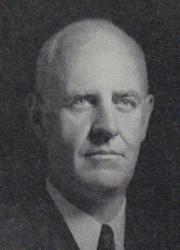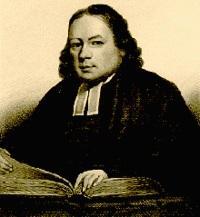Planning worship?
Check out our sister site, ZeteoSearch.org,
for 20+ additional resources related to your search.
- |
User Links
Search Results
My Hope, my All, my Saviour Thou!
Author: Unknown Appears in 137 hymnals Lyrics: 1 My Hope, my All, my Saviour Thou,
To Thee, O Lord, my soul I bow.
I seek the bliss Thy wounds impart,
I long to find Thee in my heart.
2 Be Thou my Strength, be Thou my Way,
Protect me through my life's short day:
In all my acts let Wisdom guide,
And keep me, Saviour, near Thy side.
3 Correct, reprove, and comfort me;
As I have need, my Saviour be;
And if I would from Thee depart,
Then clasp me, Saviour, to Thy heart.
4 In fierce temptation's darkest hour,
Save me from sin and Satan's power;
Tear every idol from Thy throne,
And reign, my Saviour, reign alone.
Topics: The Christian Life Trust in Christ and Redemption; Sunday after Christmas; Sundays in Lent Used With Tune: ROCKINGHAM
My Hope, my All, my Saviour Thou!
EVENING HYMN
Meter: 8.8.8.8 Appears in 480 hymnals Tune Key: G Major Incipit: 51111 223 Used With Text: Discipline
EVENING HYMN
WASHINGTON
Meter: 8.8.8.8 Appears in 2 hymnals Composer and/or Arranger: Carl Fowler Price Tune Key: F Major Incipit: 11122 43233 43365 Used With Text: My Hope, My All
WASHINGTON
ROCKINGHAM
Appears in 501 hymnals Tune Key: E Flat Major Incipit: 13421 35655 17655 Used With Text: My Hope, my All, my Saviour Thou!
ROCKINGHAM
My hope, my all, my Savior thou
Hymnal: A Collection of Hymns and Prayers, for Public and Private Worship #115 (1845) Meter: 8.8.8.8 Lyrics: 1 My hope, my all, my Savior thou,
To thee, lo! now my soul I bow.
I feel the bliss thy wounds impart,
I find thee, Savior, in my heart.
2 Be thou my strength, be thou my way,
Protect me through my life's short day;
In all my acts may wisdom guide,
And keep me, Savior, near thy side.
3 Correct, reprove, and comfort me;
As I have need my Savior be:
And if I would from thee depart,
Then clasp me, Savior, to thy heart.
4 In fierce temptations darkest hour,
Save me from sin and Satan's power;
Tear every idol from thy throne,
And reign, my Savior--reign alone.
5 My suffering time shall soon be o'er,
Then shall I sigh and weep no more;
My ransom'd soul shall soar away,
To sing thy praise in endless day. Topics: Christ Salvation Through Him Languages: English
My hope, my all, my Savior thou
My Hope, My All
Author: Anonymous Hymnal: The Cyber Hymnal #4425 Meter: 8.8.8.8 First Line: My hope, my all, my Savior Thou Lyrics: 1. My hope, my all, my Savior Thou,
To Thee, lo, now my soul I bow!
I feel the bliss Thy wounds impart,
I find Thee, Savior, in my heart.
2. Be Thou my strength, be Thou my way;
Protect me through my life’s short day:
In all my acts may wisdom guide,
And keep me, Savior, near Thy side.
3. Correct, reprove and comfort me,
As I have need my Savior be;
And if I would from Thee depart,
Then clasp me, Savior, to Thy heart.
4. In fierce temptation’s darkest hour,
Save me from sin and Satan’s power;
Tear every idol from Thy throne,
And reign, my Savior, reign alone.
5. My suffering time shall soon be o’er;
Then shall I sigh and weep no more;
My ransomed soul shall soar away,
To sing Thy praise in endless day. Languages: English Tune Title: WASHINGTON
My Hope, My All
My hope, my all, my Savior, Thou to thee
Hymnal: The Methodist Pocket Hymn-book, revised and improved #CX (1803)
My hope, my all, my Savior, Thou to thee
Anonymous
Person Name: Unknown Author of "My Hope, my All, my Saviour Thou!" in Church Book In some hymnals, the editors noted that a hymn's author is unknown to them, and so this artificial "person" entry is used to reflect that fact. Obviously, the hymns attributed to "Author Unknown" "Unknown" or "Anonymous" could have been written by many people over a span of many centuries.
Anonymous
Carl F. Price

1881 - 1948 Person Name: Carl Fowler Price Composer of "WASHINGTON" in The Cyber Hymnal
Carl F. Price
Thomas Coke

1747 - 1814 Author of "My hope, my all, my Saviour, thou " in Hymnal of the Methodist Episcopal Church Thomas Coke (9 September 1747 – 2 May 1814) was the first Methodist Bishop and is known as the Father of Methodist Missions.
Born in Brecon, south Wales, his father was a well-to-do apothecary. Coke, who was only 5 foot and 1 inch tall and prone to being overweight, read Jurisprudence at Jesus College, Oxford, which has a strong Welsh tradition, graduating Bachelor of Arts, then Master of Arts in 1770, and Doctor of Civil Law in 1775. On returning to Brecon he served as Mayor in 1772.
Ordination
In the same year as his mayoralty he was ordained in the Church of England and served a curacy at South Petherton in Somerset. He had already allied himself with the Methodist movement and this made for trouble when a new Rector arrived in the parish. Coke had begun to hold cottage services and open services of the sort promoted by Wesley. He was dismissed from his post on Easter Sunday 1777 and his parishioners celebrated at the Rector's behest by ringing the church bells and opening a hogshead of cider. He returned to Petherton in 1807 and preached to a crowd of 2,000.
He met John Wesley in August 1776, becoming one of his closest assistants. Wesley called Coke "the flea" because he seemed always to be hopping around on his missions.
He was appointed Superintendent of the London District in 1780 and President of the Methodist Church in Ireland in 1782 - a function he was to serve many times in the coming decades.
Voyage to America
Following the American Revolution most of the Anglican clergy who had been in America came back to England. Wesley asked the Bishop of London to ordain some ministers for the New World, but he declined. At this point Wesley was still an Anglican and he therefore considered only a canonically consecrated bishop capable of conferring Holy Orders. However, in 1784 Wesley consecrated Coke as the Superintendent, a title soon replaced by that of Bishop (Greek episkope) in spite of Wesley's strong disapproval. Since Coke was already a priest (Greek presbuter) or presbyter in the Church of England, some interpret this consecration as the equivalent of episcopal consecration. He set sail for New York; during the voyage he read Augustine's Confessions, Virgil's Georgics, biographies of Francis Xavier (Jesuit missionary to India) and David Brainerd (Puritan missionary to North American aboriginals), and a treatise on episcopacy. A conference of Methodist preachers was held at Baltimore at which Coke and Francis Asbury were elected bishops and the Church was constituted as an independent body under the name of the Methodist Episcopal Church. On 27 December 1784 Coke ordained deacons and presbyters and consecrated Asbury bishop: they are regarded as having been jointly the first Bishops and Superintendents of the Methodist Church in America (the American Conference formally endorsed the title of Bishop in 1787).
Other voyages
Coke returned to England in June 1785 and made eight further visits to America until he made his final visit in 1803. While in America he spoke out against slavery and wrote a letter on the subject to George Washington. Washington met Coke twice and even invited him to preach before the United States Congress. After spending some months travelling throughout Great Britain and Ireland Coke made his first mission to the West Indies in 1786, making further visits in 1788-89, 1790, and 1792-93.
Death of Wesley
Following Wesley's death in 1791 Coke became Secretary to the English Conference, having been widely supposed to be Wesley's desired successor. He was President of the Conference in 1797 and 1805, on both occasions trying to persuade the Conference to confer on him the official title of Bishop.
More voyages
In the same year he went to Paris and preached in French. He established a mission in Gibraltar in 1803 and then spent five years travelling in the cause of Methodist missions, including visiting Sierra Leone. He promoted others in setting up missions in Canada and Scotland.
Marriages
In 1805, at the age of 58, Coke married Penelope Smith, a wealthy lady who happily spent her personal fortune furthering the missions. She travelled with him until her death. In 1811 he married for a second time and his wife died the following year.
Death of Coke
He hoped to open Methodist missions in the East Indies and at his own expense he set sail for Ceylon on 30 December 1813. He had in fact tried to persuade the Prime Minister, Lord Liverpool, to appoint him to an Indian bishopric in the Church of England (the appointment of Church of England bishops being then, as now, a prerogative exercised by the Prime Minister on behalf of the Sovereign). However, Coke died after four months at sea on the way to Ceylon (Sri Lanka).
Asbury described Coke as "a gentleman, a scholar, a bishop to us; and as a minister of Christ, in zeal, in labours, in services, the greatest man in the last century."
Publications
Coke's publications included a Commentary of the Bible (1807), A History of the West Indies (3 volumes, 1808–11), History of the Bible, Six Letters in Defence of the Doctrine of Justification by Faith, Four Discourses on the Duties of a Minister, and a Preacher's Manual, as well as, jointly with collaborators including Henry Moore, a Life of Wesley (1792).
--en.wikipedia.org/
Thomas Coke


 My Starred Hymns
My Starred Hymns


